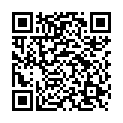|
|
|
| Module code: MBG21-5 |
|
|
9V (9 hours per week, accumulated) |
|
12 |
| Semester: 1 |
| Duration: 2 semester |
| Mandatory course: yes |
Language of instruction:
German |
Assessment:
Portfolio (24.5.1 und 24.5.2)
[updated 30.10.2023]
|
MBG21-5 (P311-0184) Management and Professional Pedagogy in Health Care, Bachelor, ASPO 01.10.2021
, semester 1, mandatory course
|
135 class hours (= 101.25 clock hours) over a 15-week period.
The total student study time is 360 hours (equivalent to 12 ECTS credits).
There are therefore 258.75 hours available for class preparation and follow-up work and exam preparation.
|
Recommended prerequisites (modules):
None.
|
Recommended as prerequisite for:
MBG21-13 Health Care Management III
MBG21-17 Health Care Management IV
MBG21.M.41 Management in Hospitals
MBG21.M.42 Management of Inpatient and Outpatient Facilities
MBG21.M.43 Change Management
MBG21.M.44 Risk Management
[updated 30.05.2024]
|
Module coordinator:
Prof. PhD Petra Riemer-Hommel |
Lecturer:
Prof. PhD Petra Riemer-Hommel
[updated 12.10.2023]
|
Learning outcomes:
Introduction to Business Administration
After successfully completing this module, students will have the following skills and competencies:
Students will be able to:
describe the entrepreneurial functions from a management-oriented point of view
distinguish between different types of companies
distinguish between categories of business goals
be able to apply problem-solving processes in a goal-oriented manner
analyze the influence of the environment on the company
apply concepts and methods of supply management in the context of healthcare
evaluate approaches to solving practical problems in interdisciplinary teams
discuss the prioritization of goals by different stakeholders in the health care system
reflect on conflicting goals between business and clinical objectives in health care
Introduction to management
After successfully completing this module, students will have the following skills and competencies:
Students will be able to:
describe different concepts of business management
distinguish and explain the management functions
distinguish between leadership style models
name and describe strategic management concepts
apply management concepts and management functions to the service sector adequately
analyze everyday work problems in the health care sector
take into account different perspectives in interdisciplinary and interprofessional teams and work groups
develop and reflect their personal leadership understanding/model
Controlling
After successfully completing this module, students will have the following skills and competencies:
Students will be able to:
distinguish between elements of operational and strategic controlling
describe elements of operational and strategic controlling
identify relevant key figures for the company valuation
select suitable controlling methods and instruments for use in the health care system
collect necessary data with controlling instruments and interpret them for business management purposes
justify and communicate the necessity of a controlling concept for general management
discuss and analyze problems in interdisciplinary teams
Students will be aware of the ethical dimension to healthcare planning and leadership decisions
They will be able to critically reflect on the role of quantitative and qualitative metrics in healthcare
[updated 30.10.2023]
|
Module content:
Introduction to Business Administration
(1) Companies and the environment
(2) Company type
(3) Corporate goals
(4) Supply management
Introduction to management
(1) What does management mean?
(2) Management functions
(3) Corporate culture and management style
(4) Management in service companies
(5) Strategic management
(6) Knowledge management
Controlling
(1) Goals, methods and instruments of operational and strategic controlling
(2) Controlling systems, instruments and methods in the health care sector
(3) Coordination at the management/medical/nursing interface
(4) Use cases
[updated 21.12.2023]
|
Teaching methods/Media:
Blended learning
[updated 15.11.2021]
|
Recommended or required reading:
Will be announced at the beginning of the module.
[updated 30.10.2023]
|

